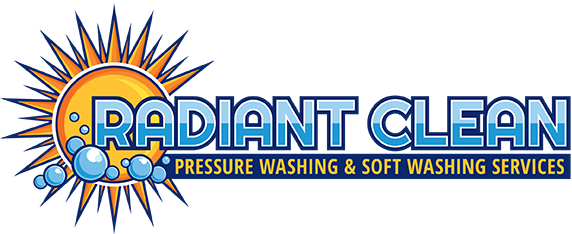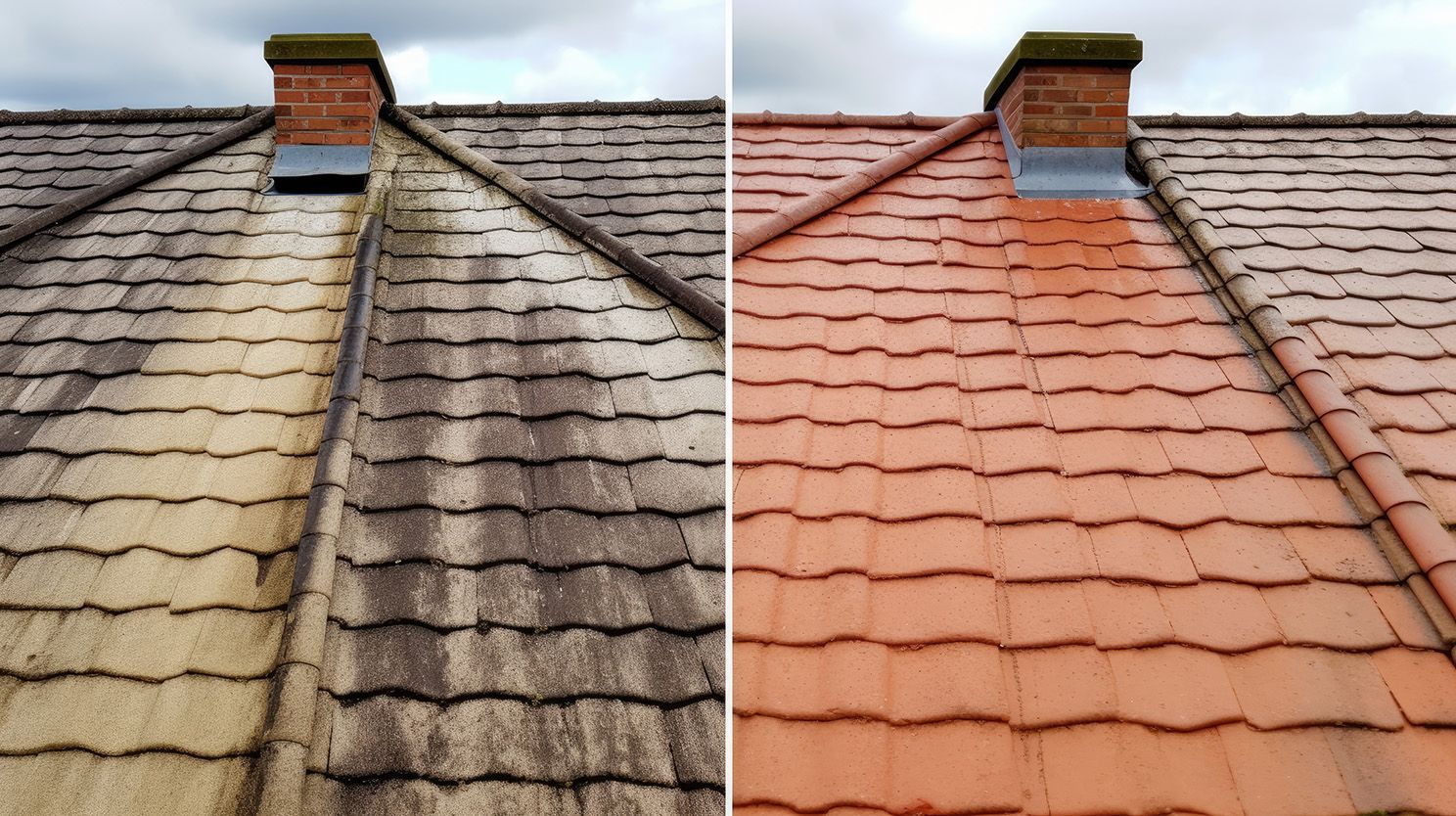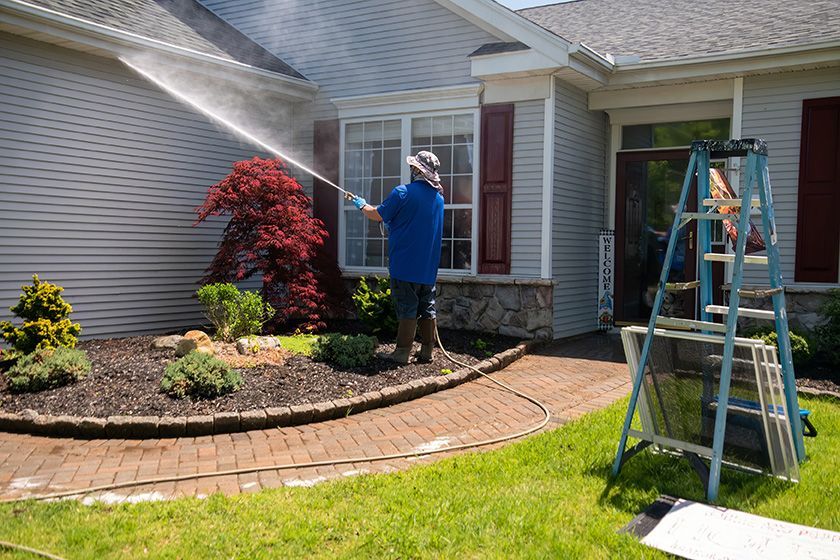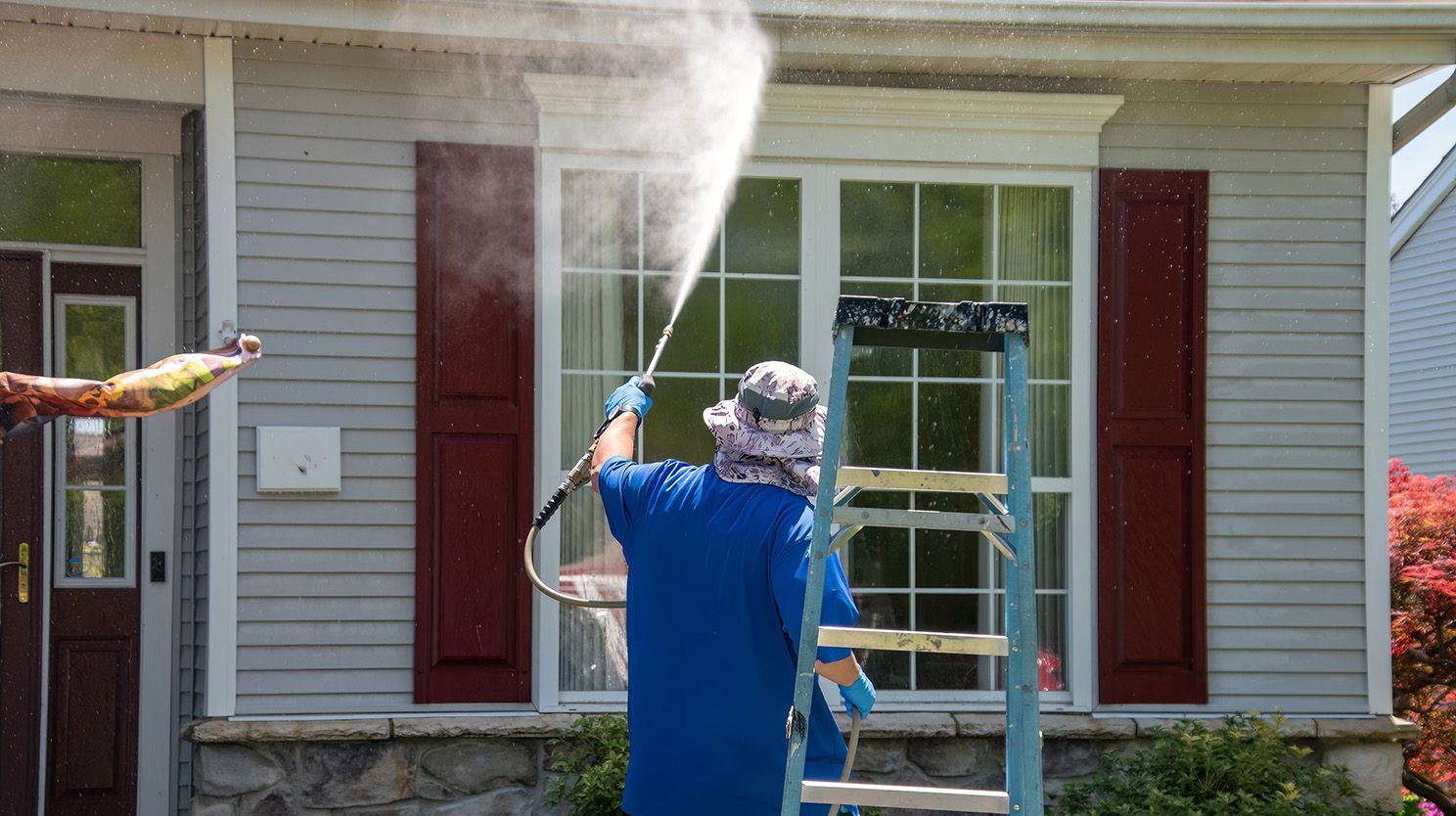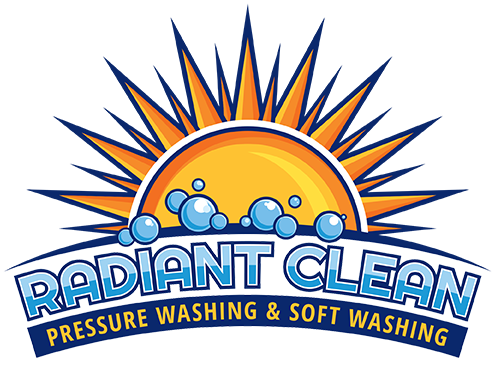Pressure Washing Screen Enclosures
Fight that green screen buildup
If you live in the Tampa area, chances are you have a screened enclosure around your pool or lanai. These enclosures provide protection from insects, leaves, and debris while allowing you to enjoy the outdoors in comfort. However, Florida’s warm and humid climate creates the perfect conditions for pollen, algae, mold, and even spider webs to accumulate on your screens.
That’s why regular pressure washing with the correct cleaning agents is essential to maintain the cleanliness and longevity of your screened enclosure. But how often should you wash it? And what’s the best way to remove stubborn organic buildup? In this guide, we’ll discuss everything you need to know about pressure washing screen enclosures and why using the right cleaning solutions is the best choice for home maintenance in Tampa.
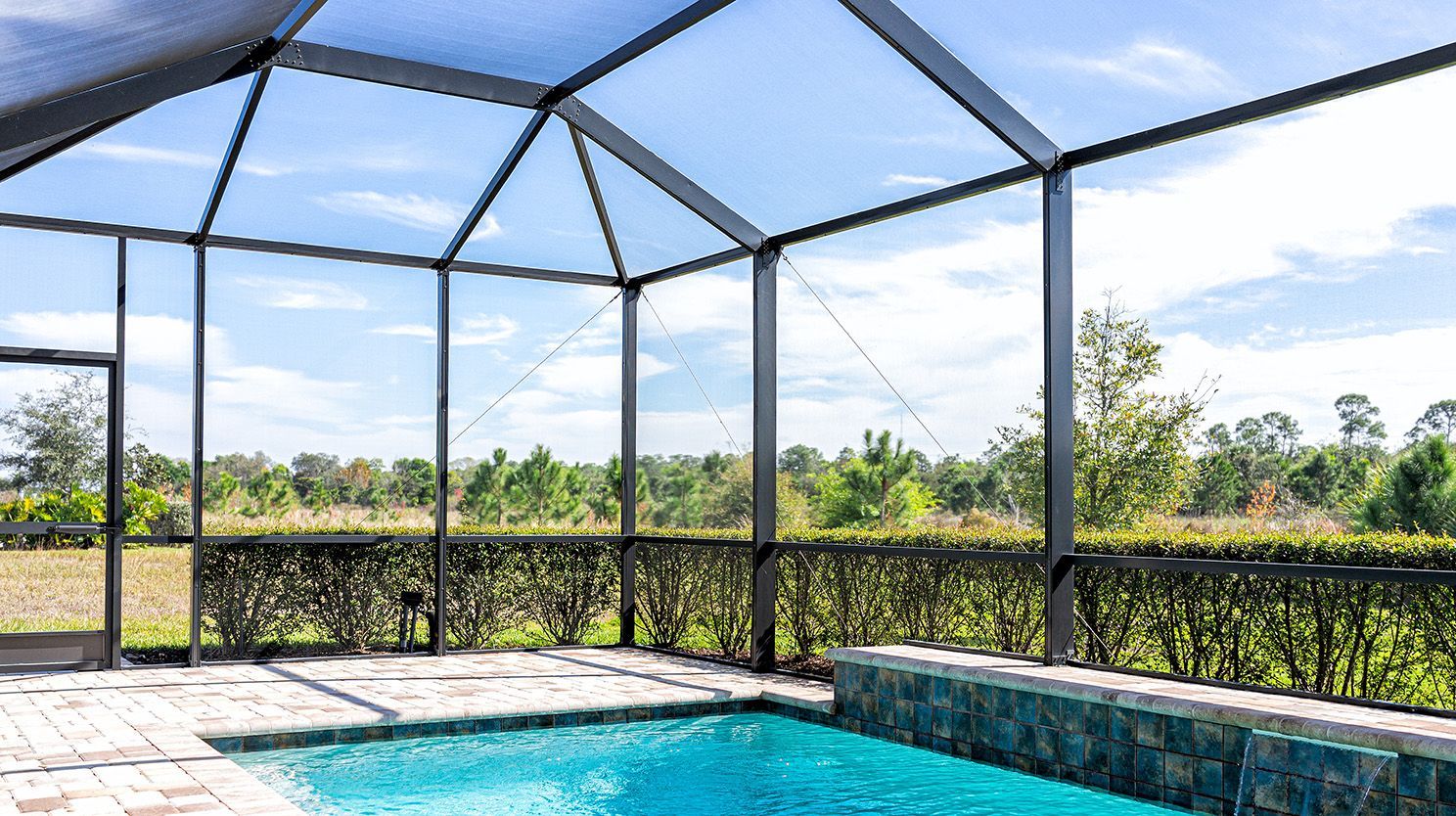
Why Do Screen Enclosures Get So Dirty in Tampa?
Living in Tampa comes with its fair share of environmental challenges that contribute to dirty screen enclosures. Here are some of the biggest culprits:
- Pollen: Tampa has a long pollen season, and fine yellow pollen from trees and flowers easily sticks to screens, creating a hazy and dirty appearance.
- Algae & Mold Growth: The humid climate fosters algae and mold growth, which can leave behind green, black, or brown stains on your screens and aluminum framework.
- Spider Webs & Bugs: Spiders love to spin their webs in screen enclosures, and other insects often get trapped inside, creating a messy and unappealing look.
- Dirt & Dust: Wind can carry dirt and dust, which settles on the screen material and aluminum frames over time.
Ignoring these issues can lead to long-term damage, making your screen enclosure look unsightly and reducing its lifespan.
How Often Should You Pressure Wash Your Screen Enclosure?
For homeowners in Tampa, we recommend pressure washing your screen enclosure every three months. This schedule keeps dirt, pollen, algae, and spider webs from building up excessively. However, certain factors might require more frequent cleaning:
- If your home is near trees that shed a lot of pollen or leaves, you may need to clean your screens more often.
- If you notice green algae starting to form, it’s time for a wash before it spreads.
- After a big storm, dirt and debris can accumulate quickly, requiring an immediate cleaning.
Sticking to a quarterly maintenance schedule will keep your screen enclosure looking fresh and help prevent stubborn stains from developing.
The Importance of Using the Right Cleaning Agents
While water alone can remove loose debris, using the correct cleaning agents enhances the effectiveness of pressure washing. These solutions help break down tough organic stains and ensure a deep clean without damaging your screens or aluminum framing. Here’s why they are essential:
- Pollen Removal: Pollen can be stubborn, but the right cleaning solutions help lift and break it down, making it easier to rinse away.
- Algae & Mold Treatment: Proper cleaning agents eliminate algae, mold, and mildew at the root, preventing regrowth.
- Spider Web Dissolution: Cleaning solutions help dissolve sticky spider webs, making them easier to wash away without residue.
- Deep Cleaning Effect: The right combination of detergents allows the cleaning solution to adhere to surfaces for longer, increasing dwell time and effectiveness.
Many professional pressure washing companies use biodegradable cleaning agents to ensure a safe and eco-friendly cleaning process without harming plants or animals.
How to Properly Pressure Wash a Screen Enclosure
When pressure washing a screen enclosure, it’s important to follow the correct techniques to avoid damage. Here’s the step-by-step process:
1. Apply a Pre-Treatment Solution
Before pressure washing, a pre-mixed solution of the correct cleaning agents should be applied to the screens and aluminum framework. This solution needs to sit for a few minutes to break down dirt and organic buildup.
2. Use Low-Pressure Washing
Screens are delicate, so using high pressure can damage the mesh. A soft wash system or low-pressure nozzle is the best choice for safely rinsing screens without causing tears or holes. The cleaning solution allows effective cleaning without the need for high pressure.
3. Rinse the Aluminum Frame
The aluminum structure of your enclosure also collects dirt, algae, and oxidation stains. Using a mild detergent and a low-pressure rinse will keep the framework looking like new.
4. Clean the Pool Deck or Lanai Floor
Since pressure washing the screens will cause dirt to fall onto your pool deck or lanai floor, it’s best to finish the job by rinsing the surrounding area for a spotless look.
Why Hire a Professional Pressure Washing Service?
While some homeowners may attempt DIY pressure washing, hiring a professional service comes with several advantages:
- Proper Equipment: Professionals use commercial-grade pressure washers and soft wash techniques to prevent screen damage.
- Correct Cleaning Agents: Professionals know how to properly mix cleaning solutions to ensure effective yet safe cleaning.
- Eco-Friendly Cleaners: A pro will use biodegradable detergents that won’t harm your landscaping or pool water.
- Efficient & Thorough Cleaning: Professionals know how to clean enclosures quickly and thoroughly, saving you time and effort.
- Prevent Damage: Improper use of a pressure washer can lead to torn screens, bent aluminum frames, and unnecessary repairs.
A professional pressure washing company will ensure that your screen enclosure looks brand new without the risk of accidental damage.
Additional Tips for Maintaining a Clean Screen Enclosure
In between professional pressure washing sessions, you can keep your screen enclosure looking fresh with these maintenance tips:
- Rinse screens with a garden hose once a month to prevent pollen and dust buildup.
- Trim back trees and plants near the enclosure to reduce pollen and leaves falling onto the screens.
- Check for small tears or damage and repair them quickly to prevent further issues.
- Keep the surrounding area clean by sweeping your lanai or pool deck regularly.
By following these simple steps, you’ll extend the life of your screen enclosure and reduce the need for deep cleaning.
Final Thoughts: Keep Your Screen Enclosure Looking Its Best
Regular pressure washing of your screen enclosure with the correct cleaning agents is essential to maintaining its appearance and longevity, especially in Tampa’s humid climate. By scheduling cleanings every three months, using proper cleaning solutions, and hiring a professional service, you can keep algae, pollen, and spider webs at bay.
A well-maintained screen enclosure not only enhances the beauty of your outdoor space but also ensures a healthier, more enjoyable environment for you and your family. Don’t wait until your enclosure looks dirty—get ahead of the buildup with regular soft washing!
Looking for a professional screen enclosure pressure washing service in Tampa? Contact us today for a free estimate and let us help keep your outdoor space looking pristine!
Free Estimate
Ready to experience a cleaner home or business exterior? Contact us today for a free estimate.
Contact Us
We will get back to you as soon as possible.
Please try again later.
